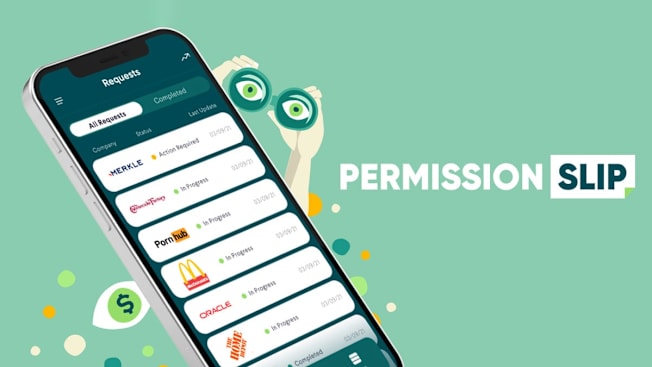Community Reporter Highlight: Rupi Singh
He never considered himself an activist – until his private data was breached over and over again

Californian Rupi Singh always was concerned about his privacy, but he never considered himself an activist. He knew that countless companies collect his data without his permission, and many sell it. But what transformed him into a CR Community Reporter working for strong consumer privacy laws was the cavalier way corporations treated his most sensitive information.
“It’s my data. And (they’re) selling it to commercial companies. I get nothing out of it. In fact, if anything, I’ve got to keep on top of it because it keeps getting breached,” he says, adding that he lost track of how many times he’s been offered free credit monitoring because of data breaches.
“I’ve lost complete control of my life, I’ve lost complete control of my data, and not only am I not getting anything out of it, I have to spend and invest time trying to regain control of it, which is just backwards if you think about it,” Rupi adds.
Community Reporters like Rupi have been key to shaping some of the strongest state privacy laws in the nation – writing emails, calling legislators, testing if laws are consumer friendly – as well as helping Consumer Reports develop a mobile app that allows consumers to easily tell hundreds of companies not to collect, share or sell their data, and to delete what they already have.

I’ve lost complete control of my data, and not only am I not getting anything out of it, I have to spend, invest time trying to regain control of it, which is just backwards if you think about it.
Community Reporter
Rupi Singh and other Community Reporters helped build the Permission Slip tool
States lead the way on privacy
Unfortunately, there is no comprehensive national law governing what businesses can do with your information, and few specific limits to how much data they can collect about you, who they can share it with and sell it to, or what it can be used for. And this unregulated use of your data can impact your financial well-being, your security, and your freedom:
Your Money: Data brokers build secret profiles about you – tracking your daily movements via apps, online purchases made, churches or political events you attend, doctors you visit, or bars you frequent – and sell that to companies who use it to help set auto insurance rates, target ads, and even change the prices that you see at checkout.
Your Security: Data collected about your location, interests, habits, and hobbies can be hacked and stolen by criminals, used by identity thieves, or given to stalkers by the companies collecting it.
Your Freedom: Inaccurate information collected and sold about you could lead to the denial of rental or job applications, or other important life opportunities. And facial recognition technology – often created by gleaning images from the internet – has been proven to have higher error rates for Black people, and its unregulated use by law enforcement has led to several wrongful arrests.
Fortunately, states have been stepping into the privacy void after an intense campaign by Consumer Reports’ members, with California becoming the first to pass strong consumer protections in 2018. The California Consumer Privacy Act gave residents the right to access, delete, and stop the sale of their information. And it was recently strengthened – thanks to Community Reporters like Rupi who determined it wasn’t consumer-friendly – to make it easier to delete personal data held by the state’s registered data brokers with just one request, rather than hundreds.
To date, 18 states have passed baseline consumer privacy laws, including the right to access the data a company has about them and have it deleted. Most also give state residents the right to correct untrue or outdated information that they find. And nearly all also give consumers the right to opt out of several ways a company might use or process their data, including generating detailed profiles of them, targeting them with ads, and selling their data to someone else.
But the problem with most of these state laws – some of which were shaped by the very companies they regulate – is that they make consumers police their own data, rather than limit what personal data companies can collect and sell. And often, consumers have to do that policing one company at a time, making it nearly impossible to control the vast network of data brokers and marketing firms who handle personal information.
Community Reporters help test privacy app
To easily give consumers more power over their privacy and not have to spend hours trying to protect it, Consumer Reports created a mobile app that shows you what kinds of data companies collect, and lets you tell a company to stop selling your data, or delete it entirely, with one tap. We refined our app thanks to the hard work of Community Reporters who helped us test it before we launched it in 2023 on both Android and iOS (Apple) platforms. Already, Permission Slip has sent more than two and a half million data requests to companies, and we’re regularly adding more companies and working to make it easier for companies to process these requests.
Community Reporters like you have been tackling the herculean task of taking back some control over their own data, and you’ve been sharing what you learned with CR. Based on those data donations, we’ve passed laws, built tools, and held companies directly accountable for violations of our data rights. And it’s all thanks to you.
But the journey to protecting your personal data doesn’t end here. In fact, our work is just beginning, and we need more Community Reporters interested in privacy to help us:
- Become a Privacy Champion. Join a group working to pass strong privacy laws in more states, and to strengthen weak state privacy laws
- Follow up on what we’re learning from Permission Slip. We often receive stories about companies that are messing up consumer’s data rights. We want to tell regulators about their issues to help fix the problem, but often the stories are from consumers in states without strong legal protections for privacy. We’ve got a small group of dedicated Community Reporters who are taking the stories we hear to see if they can be duplicated in states where these actions are not just annoying but actually illegal.
- Monitor state Data Broker Registries to determine if companies are really complying with new laws
Be Like Rupi. Join Community Reports
Please consider becoming a Community Reporter, and let’s keep our most private information private!

















